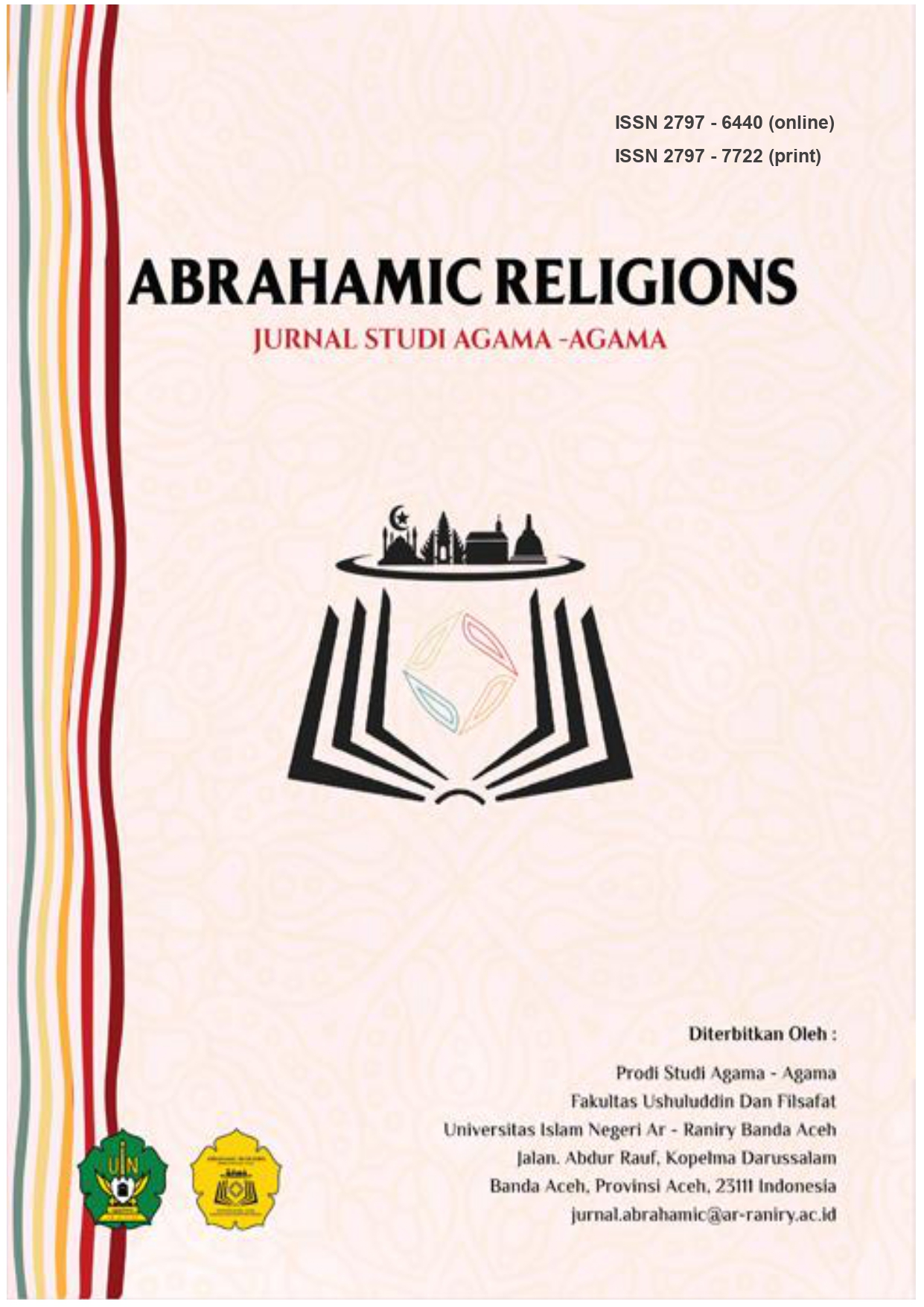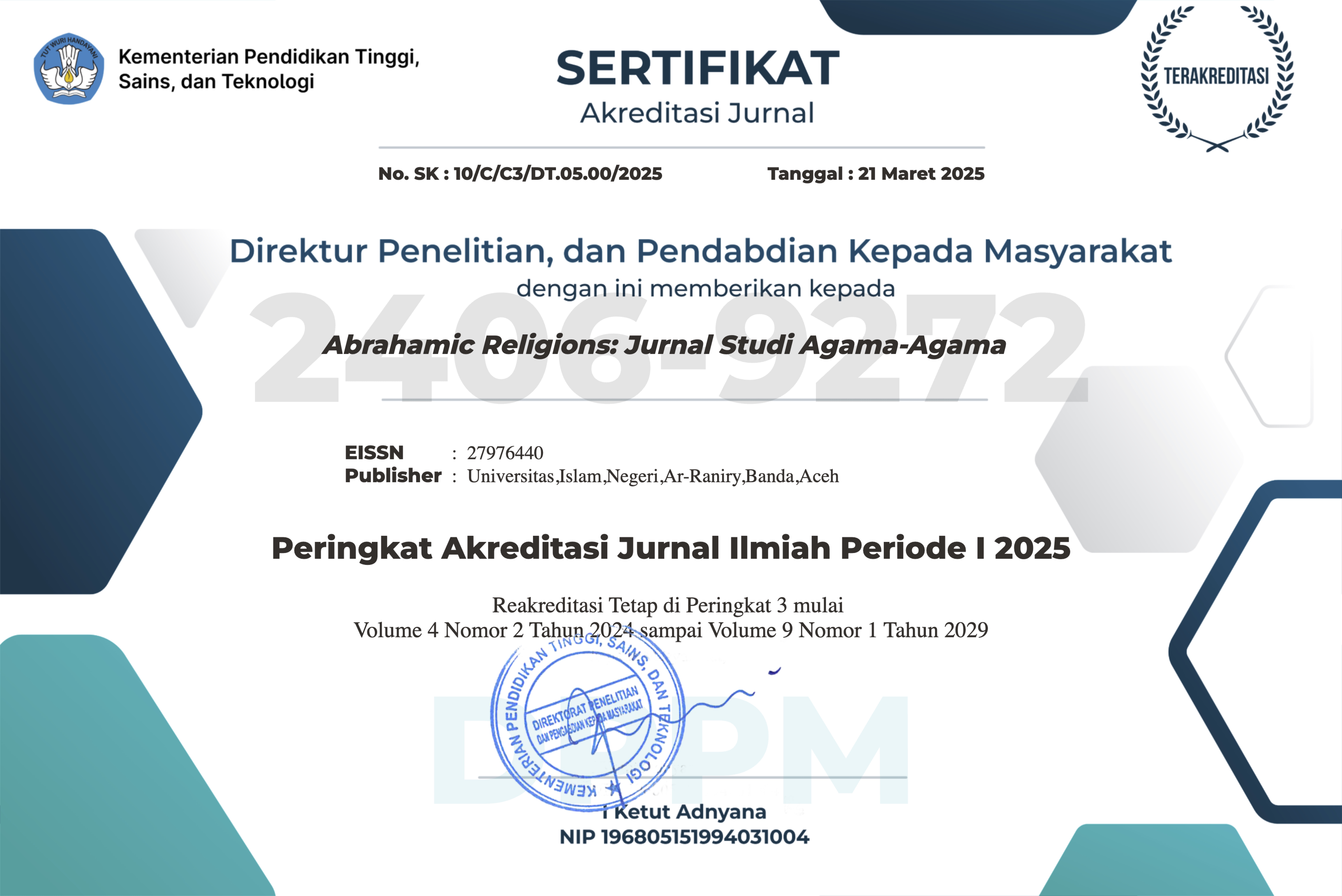KONSEP KETUHANAN DALAM KAJIAN FILSAFAT
DOI:
https://doi.org/10.22373/arj.v1i2.10728Keywords:
God, philosophyAbstract
Metaphysical theology is the study of God. God as the object of metaphysical study has a specificity compared to the other two objects of metaphysics. If the outward manifestation of the universe and the soul can be perceived by the senses, then the same is not true for the reality of divinity. God is something that cannot be grasped by the senses. Metaphysics that studies about God is called the philosophy of divinity (naturalist theology). If the philosophy of divinity makes God the final point or conclusion of the entire study, then revelation theology views God as the starting point for its discussion. The philosophy of divinity deals with proving the truth of the existence of God based on human reasoning. Divinity philosophy (naturalist theology) does not question the existence of God, the discipline only wants to underline that if there is no uncaused first cause, the relative-contingent position of objects cannot be understood by reason. From the above, there are several kinds of philosophical evidence that try to open the way to God; namely the proof of ontology, cosmology, teleology, morals, and this is at the same time an advantage of the philosophical approach compared to the approach of religion and other sciences. Science is limited to making descriptions based on empirical experience while religion departs from belief in one doctrine.
References
Abbas, K.H. Zainal Arifin. (1984). Perkembangan Pikiran Terhadap Agama 2, Jakarta: Pustaka Al-Husna.
Al-’Akkad, Abbas Mahmod. (1981). Ketuhanan: Sepanjang Ajaran Agama-agama Manusia dan Pemikiran Manusia, Jakarta: Bulan Bintang.
Bagus, Lorens. (1996). Kamus Filsafat, Jakarta: Gramedia Pustaka Utama.
Bakhtiar, Amsal. (1997). Filsafat Agama, Cet I, Jakarta: Logos Wacana Ilmu.
Mawdhu’iyyah fi Mu’tarak Al-Shira’ Al-Fikriy Al-Qaim baina Mukhtalaf Al-Thayarat Al-Falsafiyyah wa Al-Falsafah Al-Islamiyyah wa Al-Maddiyyah Al-Diyaliktikiyyah (Al-Marksiyyah). Cet X, (Dar Al-Kitab Al-Islamy: Qum, Iran, 1401 H), Trerj. M. Nur Mufid bin Ali, Falsafatuna, Pandangan Muhammad Baqir Ash-Shadr terhadap Pelbagi Aliran Filsafat Dunia, Cet V, (Bandung: Mizan, 1995).
Musa, M. Yusuf. (1988). Al Qur-an dan Filsafat, Cet I, Jakarta: Bulan Bintang.
Nasution, Harun. (1985). Falsafat dan Mistisisme dalam Islam, Cet IV, Jakarta: Bulan Bintang.
Nasution, Harun. (1987). Falsafat Agama, Cet VI, Jakarta: Bulan Bintang.
Nasution, Hasnah. (2006). Filsafat Agama, Cet I, Jakarta: Istiqomah Mulya Press.
Sayyid Al-Islam Ayatullah Al-‘Uzhma As-Asyyid Muhammad Baqir Ash-Shadar, Dirasah
Syahrastani, Asy. (tt). Al-Milal Wa Al-Nihal, Terj. Asywadie Syukur, (Surabaya: Bina Ilmu.
Trueblood, David. (1986). Philosophy of Religion, Terj. H.M. Rasjidi, Filsafat Agama, Cet VI, Jakarta: Bulan Bintang.
Downloads
Published
Issue
Section
License
Authors who publish in this Journal agree to the following terms:
- Authors retain copyright and grant the journal right of first publication with the work simultaneously licensed under Attribution-ShareAlike 4.0 International (CC BY-SA 4.0) allows others to share the work with an acknowledgment of the work's authorship and initial publication in this journal.
- Authors are able to enter into separate, additional contractual arrangements for the non-exclusive distribution of the journal's published version of the work (e.g., post it to an institutional repository or publish it in a book), with an acknowledgment of its initial publication in this journal.
- Authors are permitted and encouraged to post their work online (e.g., in institutional repositories or on their website) prior to and during the submission process, as it can lead to productive exchanges, as well as earlier and greater citation of published work. (See The Effect of Open Acces)















